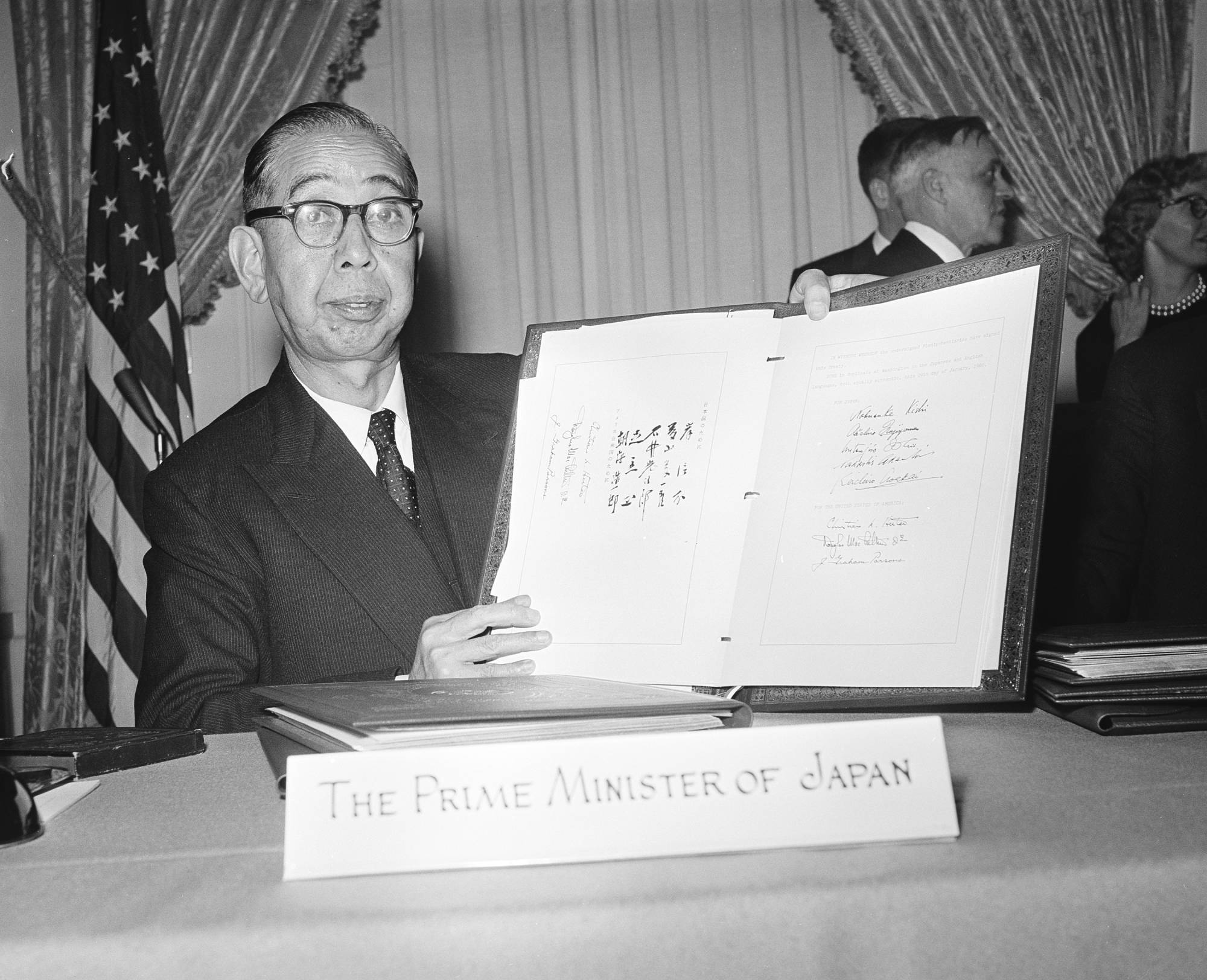Politically, 1960 was one of the most tumultuous years in Japan’s postwar history. It was also one of the most violent. Assassination attempts were made on at least three major political figures, with one succeeding. In addition, one of the attempts, fortunately unsuccessful, was against a sitting prime minister, Nobusuke Kishi, the grandfather of Japan’s current leader, Shinzo Abe.
The day Prime Minister Kishi was stabbed was a chaotic one, but more so due to the intra-party dynamics over the election to choose a successor as president of the ruling Liberal Democratic Party. U.S. Ambassador to Japan Douglas A. MacArthur II’s telegram captured this chaos of that time, important because the party president almost automatically became the prime minister (upon nomination and voting) due to the ruling party’s majority in the Diet.
Heavily divided between many factions, the wheeling and dealing, favors and broken promises, started months if not years before. MacArthur ended his July 13 telegram to U.S. Secretary of State Christian A. Herter with: “To summarize, the situation is so confused this evening that no qualified political observers are willing to risk their reputation by predicting outcome.”
















With your current subscription plan you can comment on stories. However, before writing your first comment, please create a display name in the Profile section of your subscriber account page.